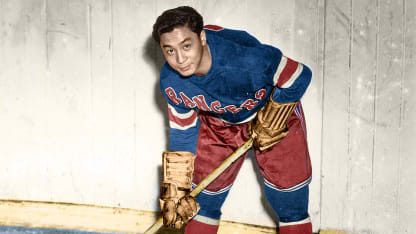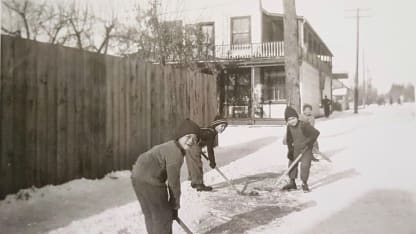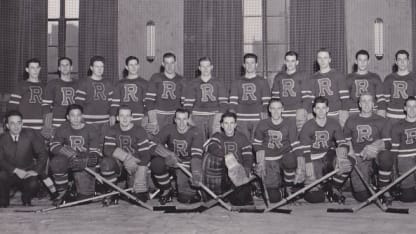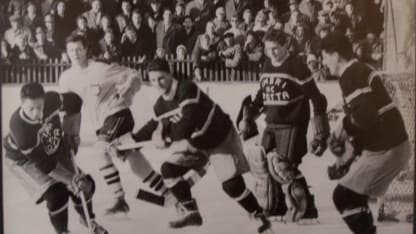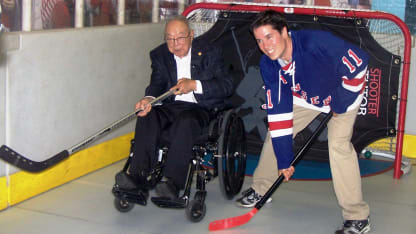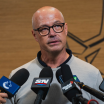Importance of Community and Giving Back
Kwong passed away on March 15, 2018, at the age of 94. His legacy for sharing his culture and helping others carries on through various initiatives.
Hockey 4 Youth, in partnership with the Canucks For Kids Fund, honoured Kwong through a program that was rolled out in Vernon, last month. The Larry Kwong Memorial Hockey 4 Youth program introduces students that come from immigrant and marginalized backgrounds to participate in a weekly hockey program.
“I think Larry would have been so happy to see that as a part of his legacy. He used to fundraise to give out scholarships,” Soon said. “He just wanted others to have the chance that he had and experience all those great things that you learn through the game.”
Heintz’ oldest daughter, Samantha, has been invited to speak on behalf of her family at various events honouring her grandfather. She gave a speech at the National Sports School in Calgary for the 75th anniversary of Kwong’s NHL game which they’re looking forward to becoming an annual celebration.
"It has been an awesome journey that we have been on, meeting Chad and so many other people. I'm really grateful and I think this is a great thing for my girls, having the opportunity to meet different people and talk to different people about their grandfather's story, and I honestly hope they keep this up after I'm gone,” Heintz said.
Kwong was a big believer in community, staying in touch with friends across the world. Heintz has had the opportunity to meet some of his friends around the globe and is reminded of the good her dad has done for others.
“I get contacted by people in Europe all the time, and on the anniversary of his passing, I get emails saying ‘We're thinking of your dad today’,” she said. “When my dad passed away, there was a big hockey game in Lugano that held a moment of silence for my dad.”
“I have folders of handwritten letters from friends and hockey buddies in Europe. Even when the husband would pass away, he’d always write a letter at Christmas time to the wife and or call them on Skype when that became a thing.”
Heintz has heard stories about her dad’s toughness. One time his team was headed to Nelson from Vernon when bad weather diverted the route across the border. Kwong couldn’t cross it because he was Chinese, so he traveled along the Canadian side of the border alone – as an early teen – to meet the team and play in the provincial championships.
He had both legs amputated below the knee, but he never let it get him down. While he was in the hospital for those 10 months, he had many friends stop by to bring food and sometimes a banquet-sized feast.
“I thought I had learned all the lessons from my dad that I was going to learn in life. But honestly, after I became my dad's caregiver is when I learned the most lessons. It was just watching him with his community of friends and the stubbornness and determination that made him so successful in hockey, in business, in life,” Heintz said.
The Longest Shot
Soon co-authored a children’s book called The Longest Shot which details Kwong’s journey and launches next month.
Soon and co-author George Chiang spent two and a half years putting the book together. Soon, an elementary teacher by trade, geared the book towards children in Grades 4-7, mentioning sharing Kwong’s story is a great message for children, encouraging them to be themselves and chase their dreams.
“It's those dreams we have when we're young when anything seems possible,” Soon said. “Here was this kid, and people were literally telling him ‘No, that's not possible for you.’ Yet he wouldn’t listen, and then he showed them it was.”

